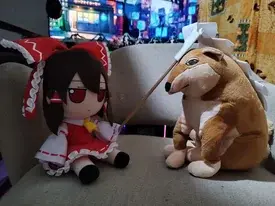Copyleft licences are the only true free software licences. All other open source licenses are just proprietariable.
What do those words mean? What is proprietariable and copyleft? Or is that the joke?
Not a joke.
Copy left is like the Robin Hood of the copyright world. Basically, it’s a type of licensing where, sure, you can use, modify, and distribute the copyrighted work, but there’s a catch. You have to give the same rights to anyone else for any derivative works. So, if you modify the work, you can’t just slap a new copyright on it and restrict its use. It’s a way to ensure that the work stays free for everyone to use. It’s pretty popular in the open source community. It’s like copyright turned on its head, hence the name “copyleft”.
Kinda based ngl. Using copyright to devalue copyright.
Copyleft tooling built all the most common and widespread tools today, and the foundations of the open web.
It’s a shame the strategy is now failing because software as a service is so popular. Nothing in the GPL forces you to distribute your changes if you don’t distribute the program. So just put the program on a webserver and let users interact through an API and hey presto, steal as much GPL code as you like.
Everyone crucified MongoDB when they tried to create a licence that prevents this, and FSF have declared that the problem can’t be solved with licences and everyone just has to boycott non-free software (good luck!).
End of free software as we know it, IMHO.
Wasn’t the Affero GPL (AGPL) created exactely to enforce copyleft in a SaaS environment?
Quoting from the GNU website:
[The AGPL] has one added requirement: if you run a modified program on a server and let other users communicate with it there, your server must also allow them to download the source code corresponding to the modified version running there.
proprietariable just means the code can be taken and rerelased as proprietary (no freedoms all rights reserved).
You think that a license that imposes more restrictions on its use is more free than one that imposes fewer???
Where my
Apache-2.0gang at?This argument reminds me of the Tolerance Paradox described by Karl Popper, who stated that in order to maintain a tolerant society, the society must retain the right to be intolerant of intolerance.
In the licensing context, yes, the Apache and Expat licenses may grant your users the freedom to create proprietary software out of your works, but at the cost of sacrificing all the basic freedoms of all the users that will use the derived non-free product.
So, like Popper said that you should prefer removing the “smaller” freedom for a society of being intolerant in order to guarantee the “greater” one of remaining tolerant in the future, since you still have to choose which freedoms you are going to negate, it’s preferable to use copyleft and impede the “smaller” freedom of creating proprietary software than not using it and allowing the crushing of future users’ fundamental rights.
Well, it depends on your perspective. Copyleft licenses restrict downstream developers in order to protect the rights of downstream users.
MITboi here.
Public Domain license checking in (though maybe that makes me an idiot)
deleted by creator
It’s not just free, it’s libre!
All that really does is guarantee that the professor will catch anyone cheating
The meme is gigachad not 9000 IQ so your objection is overruled
would be easier than to try and catch people slipping eachother code, no?
It’s really easy to detect duplicate programs. I’ve failed multiple students due to cheating on assignments. Code obfuscation is incredibly easy to detect using something like MOSS .
Of course gigachad uses a thinkpad
Code web app class homework assignment. Put a link to the AGPL on the main page. Let another student access the main page from their personal smartphone. Give them a copy of the source code. When professor accuses you of helping them cheat, you can tell the professor you legally had to.
I know this is a joke, but assuming you’re the author, then you’re under no obligation to follow the license. Only people to whom you transmitted the code are bound by its terms.
I think you’re wrong about that?
If in my hypothetical, I’d used the GPL rather than the AGPL, or if I’d neglected to let the other student access the main page, you’d definitely be right.
But AGPL is basically “GPL but also accessing the software over a network counts as distribution.”
So, if I let you access my AGPL software over a network, I’ve granted you the right to demand the source code from me, just as if I distribute a compiled executable to you under the GPL, I’ve granted you the right to demand the source code from me.
No, because you never licensed the software to yourself. You are the copyright holder. The license is a grant of rights to the recipient of source code, who isn’t the copyright holder. Whatever the AGPL says about what counts as distribution: that doesn’t matter because the license never applied to you.
As the sole copyright owner, you always have the right to change the license by which you distribute your code, and to violate it yourself. No license can remove those rights which you possess: in fact the power of the license is because of your copyright rights.
The big thing is that as soon as somebody else contributes code to your project, you lose that right, and now you’ll need to get their agreement to relicense. And of course anybody whom you distribute the source code to, they are required to follow the license.
Ok. After doing a little more research and thinking, I think you’re right.
That’s got some interesting implications. Like, I could write a program with an EULA window before it runs that says “this program is under the GPL”, give you a copy of the compiled executable, and then if you requested the source code I could tell you to jump in a lake and you’d have no legal recourse.
What’s more, if you gave a copy of the same compiled executable to someone else and they requested the source code from you, you’d have a legal obligation to grant their request, but no way to get the source code from me in order to be able to grant the request.
(The GPL even has a clause that says “If conditions are imposed on you (whether by court order, agreement or otherwise) that contradict the conditions of this License, they do not excuse you from the conditions of this License. If you cannot convey a covered work so as to satisfy simultaneously your obligations under this License and any other pertinent obligations, then as a consequence you may not convey it at all.” So I guess don’t convey compiled GPL’d code until you’re certain you have a copy of the source code in hand.)
Maybe in that case you could bring some kind of promisory estoppel case against me? But then again, I’d imagine it’d probably be pretty difficult to argue that any of what I (in the hypothetical above) did constituted a “promise” to provide you the source code unless you could argue that by putting the GPL in the EULA, I was promising to abide by the terms as if I had received the software under the GPL.
Courts granted recently in Software Freedom Conservancy, Inc. v. Visio, Inc. that the GPL could be interpreted in some cases not just as a copyright license but also as a contract, but on reflection, I don’t think that changes the conversation any either.
All that said, I think if I incorporated an AGPL piece of code not owned by me into my homework assignment and then let you access my homework assignment over a network, that would probably obligate me to give you the source code if you asked.
Thanks for correcting me there. I honestly love learning about intellectual property and contract law. I still have a lot to learn it seems. :)
I do think that if you distribute a binary along with the GPL license text, then you’ve obligated yourself to provide source. If you distribute the binary of your own program without the GPL license text, then I don’t think you’re obligated. But I’m nowhere near being a lawyer :)
Thankfully in practice none of this really matters.
The person licensing the code as GPL generally wants to share it. The license becomes much stronger as more people contribute code under the same license (but their own copyright), since it means everybody is obligated to share under the GPL (or else strip out all code which they don’t own copyright over). And as more people use/contribute, the value of the code generally increases, so it’s better that the protection becomes stronger.
And of course, supposing there’s a GitHub page for a project with a GPP license attached, then anybody who has cloned that repo is automatically granted all those rights. The owner of the copyright (assuming they own 100%) can still release the code under a different license or terms, but they can’t revoke the rights granted to anybody who already received the code.
All that said, I think if I incorporated an AGPL piece of code not owned by me into my homework assignment and then let you access my homework assignment over a network, that would probably obligate me to give you the source code if you asked.
Yeah, probably true!
even better, use an import that has AGPL license so it’s not your fault.
most new projects are in MIT?
My grades weren’t good enough so I license most of my code Community College Licence.
Fucking LOL
That’s certainly possible, but it’s only lukewarm open-source. People can prefer spicy licenses.
Apache2 is preferred nowadays.
This is part of why universities generally have it in the admissions agreement that the university will hold copyright over all that you do for your classes
Wow that’s shitty
Was either required or encouraged in my programming classes.
We were required to have our repos be private.
'Cause I’m G PL
Yes I’m the real PL
All you other letter PLs
Aren’t actually PLsI post all my homework solutions on GitHub
I only did for my last semester mostly as a practice for using git and to have something to show recruiters/employers.
Not pictured: OP and all their classmates failing the assignment and being investigated for plagiarism
That is literally me (after the assignment period ends :") )
This guy is a joke.
Based on commit history, you can prove that you did it originally
Free as in freedom
The commit history is trivial to rewrite.
this is the way.
what u mean bro mit license is also good
Doesn’t weaponize copyright, what’s even the point









